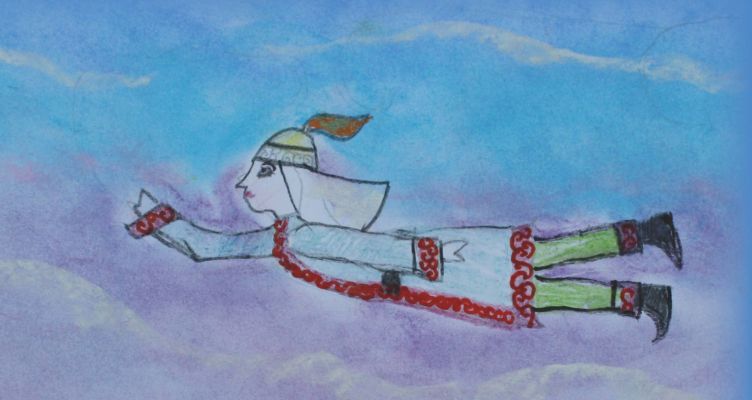Nanai Shamanic Culture in Indigenous Discourse

Dieses Buch zum Schamanismus der Nanai beruht auf unmittelbaren Informationen, welche die Autorin in den Jahren zwischen 1980 bis 2012 von Schamanen erhalten und aufgezeichnet hatte, und zwar zu einer Zeit des rapiden sozio-kulturellen Wandels in Russland. Es beleuchtet den lebhaften indigenen Diskurs, bei dem soziale Faktoren wie die Aufspaltung der Gemeinschaft in verschiedene Patrilineages zu spirituellen Irritationen führt, welche Nanai als kollektive "Schamanenkrankheit" erleben. Aber Konfrontationen zwischen einzelnen Verwandtschaftgruppen werden nicht nur in schamanischen Ritualen vermittelt, da diese nicht von Erzählungen, Tänzen und anderen Formen der Kunst zu trennen sind. Das Buch bietet außerdem tiefe Einblicke in die Pluralität widersprüchlicher Diskurse über indigenes Wissen wie auch in solche, die hierzu in nicht-indigenen Kontexten stattfinden. Letztere entstanden oder verstärkten sich zu Sowjet- und Postsowjetzeiten und führten häufig zu Experimenten mit neuen schamanischen Praktiken.
Tatiana Bulgakova wurde in Chabarovsk geboren. Sie begann ihre erste Feldforschungen bei den Nanai im Jahre 1980 und schloss 2001 ihre zweite Dissertation (Habilitation) zu sozio-religiösen Aspekten der Kultur der Nanai ab. Sie unterrichtet seit 1986 Kulturanthropologie und Folklore an der pädagogischen Universität Herzen in St. Petersburg. Ihre Arbeiten wurden gefördert durch Stipendien der Universität von Alaska, Fairbanks, U.S.A. (Fulbright Programm), des Max-Planck-Instituts für ethnologische Forschung in Halle/Saale sowie von dem Institute für Advanced Studies, Nantes, Frankreich.
Tatiana Bulgakova. Nanai Shamanic Culture in Indigenous Discourse.
2013, Fürstenberg/Havel: Kulturstiftung Sibirien
264 pp., 5 Farbabbildungen, 15,5 x 22 cm
ISBN: 978-3-942883-14-6
Euro 28, USD 39; paperback
This book on Nanai shamanic culture is based on first-hand information provided by shamans and recorded in the years between 1980 and 2012, a time of rapid socio-cultural change in Russia. It sheds light on the lively indigenous discourse in which social factors such as the splitting of society into different paternal lineages relates to spiritual troubles that Nanai people experience as collective ‘shamanic disease.’ But inter-clan confrontations are not only mediated in shamanic rituals, as these must not be separated from folk narratives, dances and other forms of art. Furthermore, the book provides profound insights into the plurality of contradictory discourses on indigenous knowledge as well as those delivered in non-indigenous contexts. The latter arose or became more intense in the Soviet and post-Soviet periods, and often led to experiments in new shamanic practices.
Tatiana Bulgakova was born in Khabarovsk. In 1980, she began her first fieldwork among the Nanai and completed her second (doctorate) PhD dissertation on socio-religious aspects of Nanai culture in 2001. Since 1986 she has been teaching cultural anthropology and folklore of the indigenous peoples of the Russian North at the Herzen State Pedagogical University in St. Petersburg. Her work has been supported by scholarships from the University of Alaska, Fairbanks, Alaska, U.S.A. (Fulbright Program), from the Max Planck Institute for Social Anthropology, Halle, Germany and the Institute for Advanced Studies, Nantes, France.
Tatiana Bulgakova. Nanai Shamanic Culture in Indigenous Discourse.
2013, Fürstenberg/Havel: Kulturstiftung Sibirien
264 pp., 5 Farbabbildungen, 15,5 x 22 cm
ISBN: 978-3-942883-14-6
Euro 28, USD 39; paperback
Erscheinungsjahr: 2013
Priorität: 0
This book on Nanai shamanic culture is based on first-hand information provided by shamans and recorded in the years between 1980 and 2012, a time of rapid socio-cultural change in Russia. It sheds light on the lively indigenous discourse in which social factors such as the splitting of society into different paternal lineages relates to spiritual troubles that Nanai people experience as collective ‘shamanic disease.’ But inter-clan confrontations are not only mediated in shamanic rituals, as these must not be separated from folk narratives, dances and other forms of art. Furthermore, the book provides profound insights into the plurality of contradictory discourses on indigenous knowledge as well as those delivered in non-indigenous contexts. The latter arose or became more intense in the Soviet and post-Soviet periods, and often led to experiments in new shamanic practices.
Tatiana Bulgakova was born in Khabarovsk. In 1980, she began her first fieldwork among the Nanai and completed her second (doctorate) PhD dissertation on socio-religious aspects of Nanai culture in 2001. Since 1986 she has been teaching cultural anthropology and folklore of the indigenous peoples of the Russian North at the Herzen State Pedagogical University in St. Petersburg. Her work has been supported by scholarships from the University of Alaska, Fairbanks, Alaska, U.S.A. (Fulbright Program), from the Max Planck Institute for Social Anthropology, Halle, Germany and the Institute for Advanced Studies, Nantes, France.
